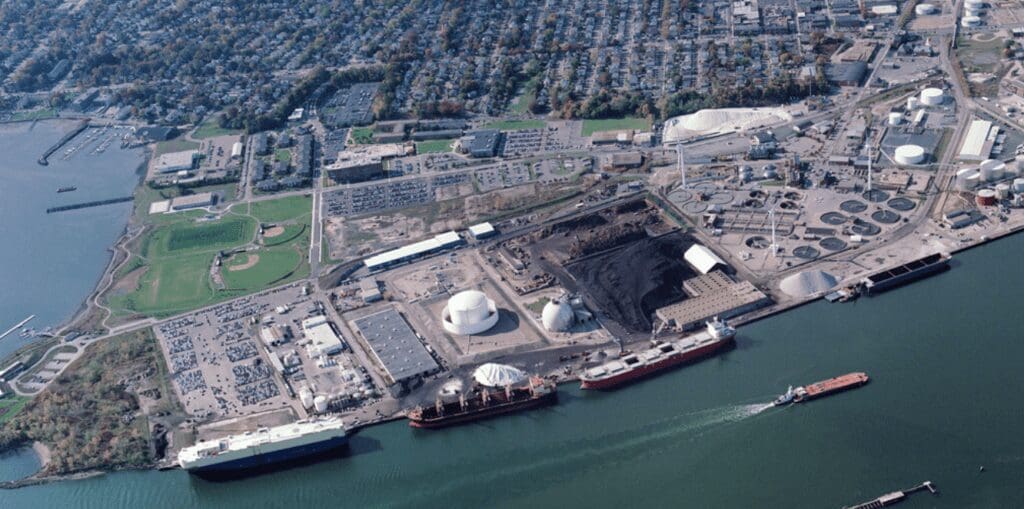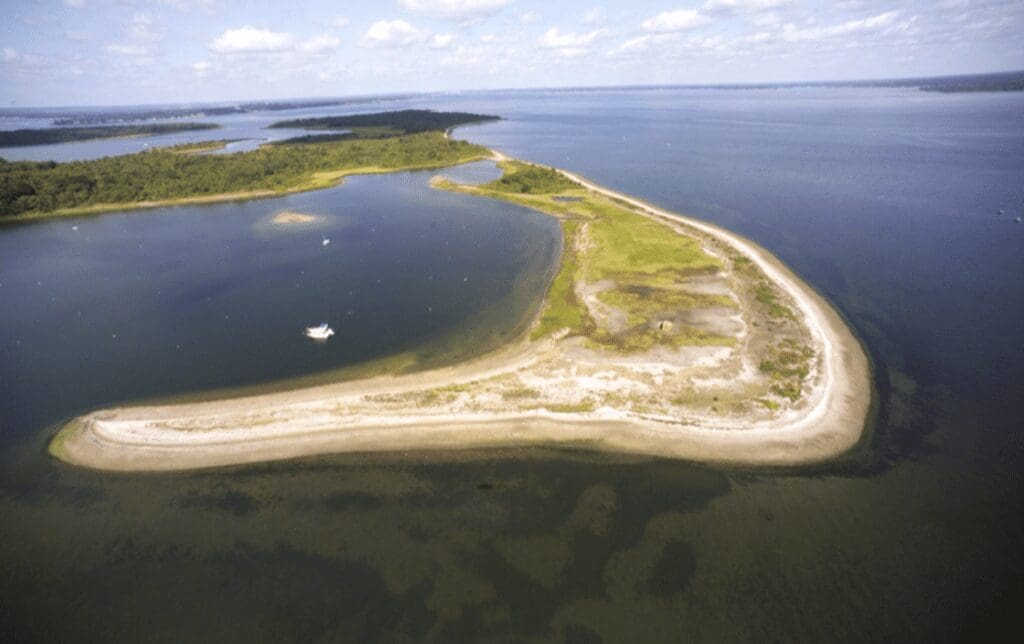Search Posts
Recent Posts
- Dr. Rosemary Costigan Named President of Community College of Rhode Island June 19, 2025
- RI Veterans: Did you know? 19.06.25 (Military Funerals, Job Fair, Benefits, Events) – John A. Cianci June 19, 2025
- East Providence First in U.S. to Equip All Firefighters with PFAS-free Gear June 19, 2025
- We Cook! Mill’s Tavern Saffron Bouillabaisse with Tarhana Lobster Jus June 19, 2025
- Rhode Island Weather for June 19, 2025 – Jack Donnelly June 19, 2025
Categories
Subscribe!
Thanks for subscribing! Please check your email for further instructions.

Rhode Island: $691,000. Massachusetts: $27.5M from new Climate-Ready Coasts Initiative
Rhode Island will have two projects funded by a new initiative announced by VP Harris. They are part of a $562 million climate change package funding projects primarily on the country’s coastline to address rising seas and coastal flooding. Rhode Island’s package will total approximately $691,000.
These two projects will create jobs and boost economic and environmental outcomes for coastal communities. The awards are made under the Biden Administration’s Climate-Ready Coasts initiative funded through the Bipartisan Infrastructure Law (BIL) with additional funds leveraged from the Inflation Reduction Act (IRA).
“Having grown up in Rhode Island, I know how important Narragansett Bay is to Rhode Island’s economy and the community,” said Secretary of Commerce Gina Raimondo. “Thanks to the President’s Bipartisan Infrastructure Law and Inflation Reduction Act, I am proud to recommend funding for the Rhode Island Department of Environmental Management to develop plans to make three coastal wetland habitats more resilient to the effects of climate change and help preserve the Bay, and to the City of Providence to begin assessing opportunities for future habitat restoration projects.”
Administered by the Department of Commerce’s National Oceanic and Atmospheric Administration (NOAA), the Climate-Ready Coasts initiative is focused on investing in high-impact projects that create climate solutions by storing carbon; build resilience to coastal hazards such as extreme weather events, pollution and marine debris; restore coastal habitats that help wildlife and humans thrive; build the capacity of underserved communities and support community-driven restoration; and provide employment opportunities.
Recommended projects and funding amounts in Rhode Island include:
- Technical Analysis of the Port of Providence to Determine Shoreline, Habitat Restoration, and Climate Resilience Needs While Engaging Local Community Members Most Impacted by the Port
City of Providence: $492,000
Funding Source: Coastal Habitat Restoration and Resilience Grants for Underserved Communities
The City of Providence will conduct an analysis of the Port of Providence’s coastline, which borders the South Providence and Washington Park neighborhoods. The assessment will identify current shoreline conditions and potential opportunities for future habitat restoration. The city will also partner with Groundwork Rhode Island and Save the Bay to conduct outreach and provide educational opportunities for local community members. - Improving Coastal Wetland Resilience within the Narragansett Bay National Estuarine Research Reserve
Rhode Island Department of Environmental Management: $199,000
Funding Source: National Estuarine Research Reserve System Habitat Protection and Restoration Grants
This project will address sea level rise impacts by supporting the design and permitting of projects that protect important coastal wetland habitats within the Narragansett Bay National Estuarine Research Reserve. The development of construction plans, cost estimates, and permit applications for three habitat areas—Coggeshall Marsh, Nag West Marsh, and the T-Wharf Shoreline—will ultimately provide room for the habitat to move upland. The restoration planning will include mitigation measures, such as rerouting coastal roads and removing infrastructure that impedes marsh migration.


Massachusetts funding for 9 projects:
“The Biden-Harris Administration is committed to investing in high impact projects in Massachusetts and across the country that will create good paying jobs and Climate-Ready Coasts,” said Secretary of Commerce Gina Raimondo. “Thanks to the President’s Bipartisan Infrastructure Law and Inflation Reduction Act, we are helping support a wide array of locally-led efforts to keep the Bay State’s coastal communities a thriving place to work, live, and raise a family.”
- Herring River Restoration Project, Phase 1
Town of Wellfleet: $14.6 million
Funding Source: Transformational Habitat Restoration and Coastal Resilience Grants
This investment will support the first phase of the Herring River Restoration Project, the largest salt marsh restoration effort in the Northeast United States. The project will help restore the flood and storm protection functions of a healthy salt marsh, rebuild and improve the resilience of local bridges and roads, improve water quality and habitat for fish and shellfish, and help the marsh regain elevation and keep pace with sea level rise. Upon completion, the overall effort will restore 890 acres of tidal wetlands and reconnect a functioning estuary to Cape Cod Bay and the Gulf of Maine. - Making Space: The Southeastern Massachusetts Marsh Migration Initiative
Massachusetts Audubon Society: $4.3 million
Funding Source: Transformational Habitat Restoration and Coastal Resilience Grants
Coastal marshes are at severe risk due to climate change and sea level rise. Retired, low-lying cranberry farmlands provide a potential space for these habitats to migrate as sea level rises. This project will support planning and pilot projects for coastal marsh restoration in southeastern Massachusetts by restoring wetlands degraded through historic cranberry farming. The restored coastal wetlands will provide critical habitat for threatened and endangered species, and provide breeding grounds for commercially valuable fish. The project will also provide public access to sites and sustained cultural uses for tribal communities. - New England Regional Derelict Fishing Gear Removal and Response Coalition
Center for Coastal Studies: $2.7 million
Funding Source: Marine Debris Removal Competition
The Center for Coastal Studies will lead a new coalition of New England nongovernmental organizations to remove, document, and recycle, repurpose, or properly dispose of abandoned, lost, or otherwise discarded fishing gear and end-of-life fishing gear from the Gulf of Maine’s water and shorelines. The project spans the coastlines of Maine, New Hampshire, and Massachusetts and seeks to build capacity and share information across states. - Truro Pamet River Restoration
Massachusetts Executive Office of Energy and Environmental Affairs: $2.1 million
Funding Source: Coastal Zone Management Habitat Protection and Restoration Grants
This investment will result in a feasibility study and the collection of the data necessary to design a remediation of six tidal restrictions within five project focus areas: the Little Pamet River, Lower Pamet, Upper Pamet, Mill Pond, and Eagle Neck Creek Earthen Berm. These elements together will support the greater goal of restoring salt marsh functioning within the Pamet River system. - Manchester Central Street Bridge Replacement and Sawmill Brook Restoration Project
Executive Office of Energy and Environmental Affairs: $1.5 million
Funding Source: Coastal Zone Management Habitat Protection and Restoration Grants
This investment supports habitat restoration and fish passage while increasing resiliency for the Town of Manchester-by-the-Sea. The project includes replacing the Central Street Bridge, removing a tide gate structure, upgrading channel walls, restoring saltmarsh wetlands, and creating living shorelines to stabilize the stream banks. One acre of salt marsh and 1,534 linear feet of stream connectivity will be restored, which in turn will improve resiliency for the Sawmill Brook watershed and the community. - Initiating Transformational Habitat Restoration in the Great Marsh Area of Critical Environmental Concern
Ipswich River Watershed Association: $1.3 million
Funding Source: Transformational Habitat Restoration and Coastal Resilience Grant
This project will support habitat restoration in the Great Marsh, the largest remaining salt marsh in New England. It will plan for and begin construction on several efforts to address all remaining high-priority barriers identified in the region. The work including three barrier removal demonstration projects will increase the pace of restoration activities and resolve issues watershed-wide, with a focus on benefiting fisheries habitat including important forage species such as river herring. - Mill Creek Community Engagement and Pilot Project: Slade Mill Dam Removal
City of Chelsea: $428,000
Funding Source: Coastal Habitat Restoration and Resilience Grants for Underserved Communities
The City of Chelsea will gather community input and remove Slade Mill Dam on Mill Creek. They will work to actively engage the local community throughout all phases of planning and construction, including through community meetings, site walks, and educational signage. This project will work in tandem with an ongoing effort to create a park and riverwalk that will increase public access to Mill Creek. - Cape Cod Coalition to Shift Tourism Businesses to Sustainable Serviceware
Woods Hole Sea Grant (Massachusetts): $299,000
Funding Source: Marine Debris Community Action Coalitions
This project seeks to address the problem of single-use plastics used in tourism-based food, hospitality and experience businesses on Cape Cod that contribute to marine debris. Building on existing partnerships and relationships, the project will form an action-based environmental stewardship coalition of tourism, education and government partners to transition businesses away from single-use plastics. This work will expand on an “alternative serviceware guide”. - Massachusetts Marine Debris From Source to Stellwagen: A Comprehensive Suite of Tools for Environmental Educators
Massachusetts Institute of Technology Sea Grant: $286,000
Funding Source: Marine Debris Community Action Coalitions
The coalition formed by this project will consist of K-12 teachers and students, environmental organizations, underserved communities and commercial fishermen who are interested in addressing issues of marine debris in eastern Massachusetts together. This project aims to build new tools for the tracking and visualization of marine debris, develop marine debris curricula for teachers, and create a pathways internship for underrepresented students to further explore issues of marine debris.
As for the rest of New England, Connecticut shows no funding. Maine will receive $7.6 million. New Hampshire, $5.6 million. California (north and south) receives the most – over $82.8 million.
